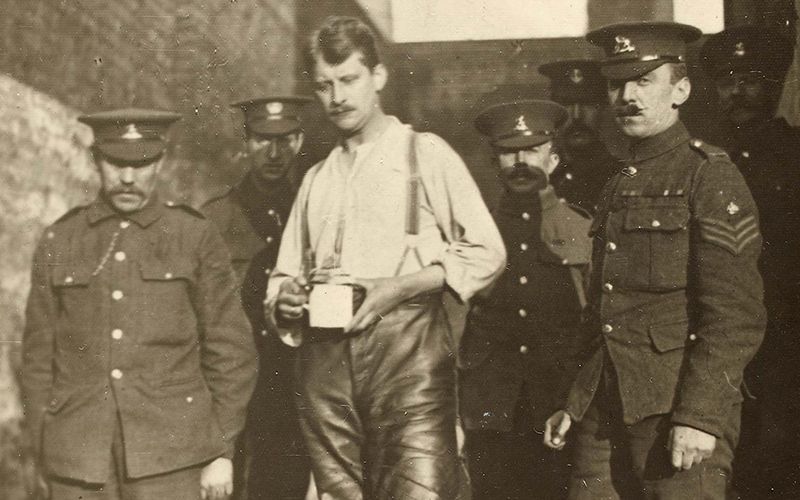Ben Affleck is making his big comeback in Gavin O'Connor's tearjerker for men "The Way Back"
Playing a former star basketball star who coaches his scrappy young team toward greatness, it's a believe-in-yourself tale for people who have stopped believing.
So if your dad's looking for a tearjerker that's also manly as a shelf full of Old Spice, this is the one. Tell him to check out "The Way Back" by Irish American director and co-writer Gavin O'Connor, 55, and starring Ben Affleck, 47.
Word to the wise though, you might also want to pick up a man-sized box of Kleenex facial tissues on the way to the cinema (the film opens Friday, March 6) because 'The Way Back' is here to destroy you.
Read More: Matt Damon, Ben Affleck, Adam Driver to film in Ireland - and they're looking for extras!
The film could just as easily be called 'The Comeback' of course because Academy Award-winning star Affleck has actually lived the themes that the film addresses – alcoholism, divorce, family strife - in his own personal life.
Unfortunately for him, because he's a top tier Hollywood celebrity, he's had paparazzi to record his every disaster, then splash it all over the supermarket scandal rags. It's enough to drive anyone to drink.
But that weird double vision, that blend of fact and fiction, to the point where you can start to lose sight of where one story stops and the other starts, is either the best or the most distracting part of 'The Way Back', depending on your point of view.
When we first meet Affleck's Irish American character Jack Cunningham his life is already a big fat layer cake of misfortune. He's divorced and working in a dead-end construction job where he swigs vodka neat from his coffee flask when no one's looking.
Driving his pickup directly from work to the bar he's clearly given up on himself and life. He's wilting fast and preparing for the next world.
But before you can say 'It's A Wonderful Life' he gets an unexpected second chance. The local parish priest calls Jack out of the blue and asks him to stop by his old high school the next morning.
It turns out that the school's basketball coach has had a very convenient heart attack and Jack, their former star player, is unexpectedly asked to come back to the old court, but this time as the head coach.
This is what is known in movie-speak as the call. How Jack answers, or fails to answer, the call will set the rest of the plot in motion. First, of course, he resists. He's too busy (a lie) he's too unprepared (another lie) and he can't teach sports to save his life (a huge lie).
The local priest sees right through him of course and won't take no for an answer. Soon Jack is standing on the basketball court where he once achieved greatness and where he now meets the young team he will coach.
Read More: George McKay used Conor McGregor as inspiration for Ned Kelly movie
Since most of them are Latino or Black, it looks like we are in for another uncomfortable white savior narrative, where the principled white guy teaches angry, alienated young men of color the importance of teamwork and self-respect.
It certainly looks like 'The Way Back' is headed in that cringe-filled direction until it becomes clear that the person most in need of saving is the one coaching the team. Jack is a mess. Even as he gets the lads to reconsider their strategy and commitment, his own life is unraveling further.
Soon we learn that it's not just his divorce that has sent him into an emotional tailspin, he and his wife have also lost their seven-year-old child to cancer and he can't process his grief over it.
“I'm angry all the time,” he confesses to his ex-wife at one point and you really believe him. “I don't believe he's in a better place,” he adds. “When he was with us he was in a better place.”
Read More: "Leap Year" ten years later - is it so bad it's good?
These lines land hard on us in the audience because how could they not? They give a context to Jack's anger and insularity, making us see that it's unexpressed pain and grief that is guiding his footsteps and ruining his life.
But the problem is that Jack, like so many alcoholics, cannot understand that he's in denial and needs real professional help. It's other people who are the problem he thinks, like his sister with her constantly concerned face he can hardly bear to look at.
As he coaches his boys toward success on the court we begin to hope that his life is turning a corner and that's certainly how it looks for a while. In the players he sees echoes of his own past promise when he was young and still had it all ahead of him. Through them he begins to reconnect with what's best in himself.
If this storyline sounds like it's familiar to you, well it really is. Once this film might have starred John Wayne or Clint Eastwood or Mel Gibson or Kevin Costner and it often feels as if it's a role and a story line that has been handed down like an old suit over the decades since the dawn of cinema.
What's different about Affleck's affecting performance in 'The Way Back' is that he's lived much of what's he portraying and most of the audience will probably know it. By this point 'The Way Back' looks like it's going to be one of those lonely man finds redemption through the sporting achievements of his pupils, and it is that but with an important twist.
O'Connor knows all about Irish American life and the pieties of high school sports, having grown up in Huntington, New York. He brings real authenticity to this last-minute Lazarus tale, and he clearly has real feeling for the character of Jack.
But here's the thing that rankles a little, Jack is never really alone in his struggles.
He has a well-to-do family who check him into rehab and presumably pay for his stay. He has kindly Catholic teachers who throw him a lifeline and offer him employment. He has extended social networks that check in on him and even carry him to his front door when he goes on another bender. He's never really what you could call abandoned.
That's what makes 'The Way Back' look much more like 'The Stroll Back'. There's not much in the way of major obstacles in Jack's quietly privileged path. His only real obstacle is himself, it turns out. When he gets wise, he finally gets sober and gets some therapy. It takes him two hours of film time to work it out, but it's a message we all need reminding about sometimes.
Some people's way back is smoother than other's and made smoother by the efforts of their supporters. It might have been more interesting and certainly, it would have been more affecting if Jack had been left to make his way back more or less by himself.
Read More: Colin Farrell, Brendan Gleeson team up again for ‘Banshees of Inisheer’




Comments